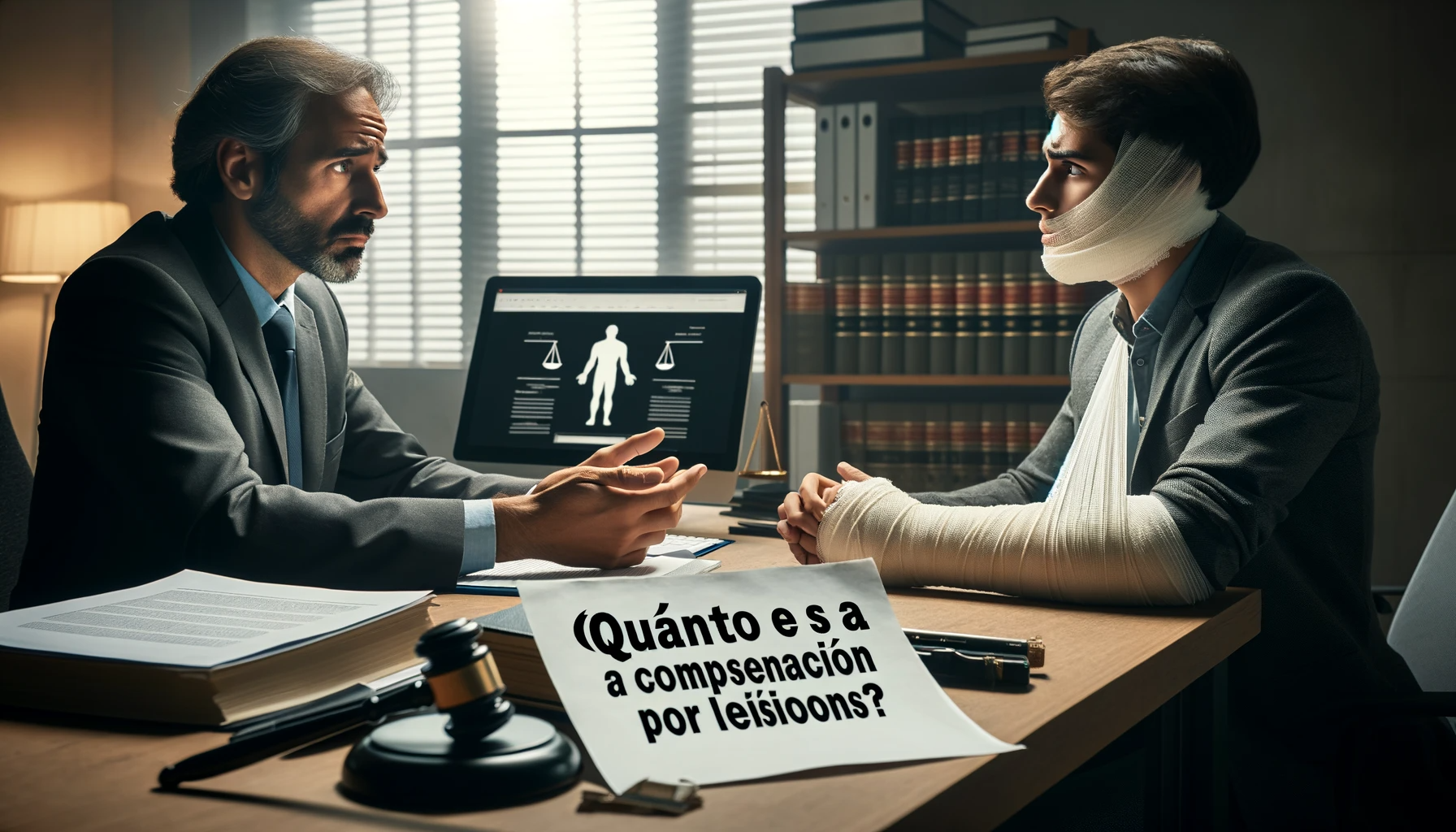Defining Workers' Compensation
Workers' compensation is an insurance program that provides financial support to employees who sustain injuries or illnesses as a result of their job duties. It typically covers medical costs, rehabilitation expenses, and a portion of the employee's lost wages. The goal of workers' compensation is to help injured employees recover and return to work while protecting businesses from potential lawsuits.
The Coverage of Workers' Compensation
Workers’ compensation insurance is designed to cover a wide range of work-related injuries and illnesses. This includes everything from physical injuries sustained in accidents at work to conditions that develop over time due to workplace activities, such as repetitive strain injuries or occupational diseases like lung disease from exposure to harmful substances. It also covers permanent disabilities, and in the unfortunate circumstance of a worker’s death, it provides benefits to dependents.
To be eligible for workers' compensation, the
Injury or illness must be work-related. As an employee, you should report the injury to your employer as soon as possible following the incident. Each state has its own deadlines for reporting work-related injuries, so it's important to be aware of these deadlines. Once the injury is reported, the employer is responsible for filing a claim with their workers' compensation insurance carrier.
Receipt of Workers’ Compensation Benefits
If the workers' compensation claim is approved, the injured worker may receive various types of benefits depending on the nature and severity of the injury or illness. These benefits can include medical treatment coverage, replacement income for lost wages, vocational rehabilitation, and benefits for permanent impairments.
Understanding the Rights and Responsibilities in Workers’ Compensation
Both employers and employees have rights and responsibilities under workers' compensation laws. Employers are generally required by law to provide workers' compensation coverage, while employees have the responsibility to report injuries in a timely manner and follow prescribed treatment plans. It's also important for both parties to know that workers are protected from retaliation for filing a claim, and employers can't terminate or discriminate against an employee for claiming workers' compensation benefits.
Requirements for Workers Compensation Claims
To be eligible for workers compensation, there are certain qualifying conditions that must first be satisfied. Firstly, the claimant must be an employee of the company where the said accident occurred. Independent contractors or volunteers may not be eligible for workers compensation.
Also, the employer must carry workers' compensation insurance. Many states require this from businesses once they have a certain number of employees.
Finally, the employee must have a work-related
Injury or illness. Work-related injuries are those that happened while performing tasks for the benefit of the employer.
Evidence Required for Claims
For employees to prove the validity of their workers' compensation claim, they need to provide sufficient evidence. This may include medical reports, eyewitness accounts, surveillance footage if any, and perhaps, a detailed report of the incident. Providing these details can make the difference between a successful and an unsuccessful claim.
Time Limit for Filing a Claim
It is important to note that there is a time limit within which a workers compensation claim must be made. The time frame is usually determined by state law and often starts from the date of the accident or injury. In most cases, failing to report the injury within the given time limit may result in denial of the claim.
Excluded Conditions and Circumstances
While
Workers compensation covers most work-related injuries and illnesses, there are certain circumstances and conditions that it does not cover. These may include injuries suffered while an employee was intoxicated or using illegal drugs, injuries inflicted on purpose or suffered during a fight that the injured employee started, and injuries suffered while an employee was committing a serious crime.
Navigating Denials and Disputes
There may be instances where workers' compensation claims are denied. When this happens, employees have the right to appeal. The appeal process varies by state and may involve presenting your case to a workers' compensation judge or board. It's important to be aware of these processes and potential obstacles when applying for compensation.
Process of Filing for Workers Compensation

1. Notifying Your Employer
The initial step in seeking workers' compensation benefits is to report your
Injury or illness to your employer. This should be done as soon as possible, but definitely within the timeframe specified by your state’s laws. It’s best to give written notice and keep a copy for your records. The notification should include details about the incident such as when, where, and how it happened.
2. Seek Medical Attention
Following a workplace accident or illness onset, it's crucial to obtain appropriate medical treatment. Make sure to inform your healthcare provider that your condition is related to your job. Medical documents and doctor’s opinion can serve as important evidence in your claim.
3. Filing a Claim
After you've reported your
Injury or sickness to your employer, they are typically responsible for filing a workers' compensation claim with their insurance company. However, in some states, it is the employee's duty to file the claim. The claim form should be filled out accurately and comprehensively, detailing the specifics of your work-related injury or disease.
4. The Insurance Company's Decision
Once your employer or you have filed the claim, the insurance company will investigate and decide whether or not to approve it. If approved, they will begin making payments for your medical expenses and a portion of your lost wages. If your claim is denied, there will be a process for appeal outlined by your state’s workers' compensation board.
5. Legal Rights and Appeal Process
In the event your claim is denied, or if you believe you're not receiving the proper benefits, it's essential to understand your legal rights. You may choose to appeal the decision, often through a hearing before a workers' compensation judge. At this stage, hiring an attorney who specializes in workers' compensation can be incredibly beneficial.
Immediate Aftermath of the Accident
The process for workers' compensation payouts begins as soon as an accident occurs. A worker must report the incident to their employer immediately and seek medical help if necessary. From that point, the employer has the duty to file the initial claim, typically within 24 to 48 hours.
Filing and Processing the Claim
Once the claim is filed, it is then sent to the state's workers' compensation board or the insurance company, where it gets processed. This stage could take a few weeks as the board or insurance has to verify the legitimacy of the claim. It involves reviewing medical records, accident reports, and possibly conducting interviews with the involved parties. During this period, the injured worker might receive some temporary disability benefits.
Approval and Initiation of Payments
After verifying the claim, if approved, payments begin. This usually happens within a few weeks after claim approval. The payout timeline here can fluctuate based on factors like the severity of the
Injury, whether the claim was disputed, and the efficiency of the administrative process.
Continuous Payments and Benefit Review
Following the initiation of payments, the injured worker continues to receive benefits until they can return to work or have reached 'maximum medical improvement'. There can be periodic reviews of the worker's medical condition and employment status during this time, affecting the timing and amount of continuing payments.
Settlement Phase
In some cases, a lump sum settlement may be negotiated between the worker and the insurer which finalizes the payment process. This settlement phase can happen at any time during the claim but generally occurs when the worker's medical condition has stabilized. The time to reach a settlement varies greatly from case to case.
Rights and Duties of the Worker post-accident
Understanding Employee Rights Post-Accident
After a work-related accident, the injured employee has the right to seek immediate and necessary medical treatment. The employer or the
Workers' compensation insurance company is typically responsible for covering these medical expenses. It's essential for the worker to inform the doctor that their
Injury occurred at work so that it can be correctly documented.
Employee Duties Following an Accident
The worker has a responsibility to report the accident promptly to their supervisor or employer. This should be done in writing with date, time, nature of the injury, and how it happened. Failing to report an accident within a specified timeframe may jeopardize the worker's eligibility for compensation benefits.

The Right to File a Claim
Every worker has the right to file a workers' compensation claim after an accident at work. By law, an employer cannot retaliate against an employee who files a claim. It's crucial for the worker to understand their state's specific procedures and deadlines for filing a claim to ensure their rights are protected.
The Duty to Comply with Treatment and Rehabilitation
Following a workplace accident, the employee has a responsibility to comply with prescribed medical care and any rehabilitation requirements. This could involve attending all medical appointments, following physician instructions, and participating in physical therapy or other treatments if required.
Right to Return to Work or Vocational Rehabilitation
If an injured worker can return to their job, they have the right to do so without retaliation or discrimination from their employer. If they're unable to perform their previous work due to their injuries, they may be eligible for vocational rehabilitation services to help them return to suitable employment.
Common Issues Encountered When Claiming Compensation
Delays in Compensation Release
One common issue that workers often encounter when claiming compensation is delays in its release. Various reasons can contribute to this delay, such as processing errors, inability to validate the worker's claims, or bureaucratic red tape. Some employers or insurance companies may deliberately delay the payment to discourage the claimant.
Denial of Claims
There's a considerable number of cases where an injured worker's compensation claim is denied outright. This denial could be due to several reasons, such as doubts about whether the
Injury was genuinely sustained at work, inadequate medical evidence supporting the claim, or failure to meet specific deadlines in the filing and notification process.
Partial Compensation
Sometimes, a worker may receive compensation, but it doesn't cover all the expenses or lost wages he incurred due to the injury. This problem can arise if the employer or insurance company underestimates the severity of the injury or the cost of living while incapacitated. The discrepancy between the compensation received and the actual financial impact experienced by the worker is another concern in these cases.
Issues with Employer Cooperation
Employers' willingness to cooperate significantly affects the ease and success of claiming compensation. Some employers may be uncooperative when it comes to fulfilling their obligations related to
Workers' compensation claim. They might retaliate against the employee who made the claim, discourage other employees from supporting the claim, or even deny the accident happened at the workplace.
Complications Due to Pre-existing Conditions
A worker with a pre-existing condition can expect their compensation claim process to be more complex. Insurers may argue that the
Injury resulted from the pre-existing condition rather than an accident at work. This argument could lead to partial or total denial of the claim, which adds another level of difficulty for affected workers.
Legal Remedies for Unsuccessful Compensation Claims
Exploring the Legal Routes Available
In the event that a compensation claim is unsuccessful, you are not without options. There are various legal remedies available to you. However, it's important to understand that these legal avenues can be complicated and may require assistance from professionals like workers' compensation attorneys.
Appeals Process: An Initial Solution
The first step in claiming a legal remedy for an unsuccessful compensation claim is usually making an appeal. This involves challenging the decision of the compensation body or insurance company. The appeals process differs according the laws of each state, thus it is crucial to familiarize yourself with your local processes and deadlines. Be aware that there will be strict time limits within which you must file this appeal.
If your initial appeal fails or if the process feels overwhelming, it could be time to consult a workers’ compensation attorney. These legal experts can guide you through the process, ensuring that all paperwork is correctly filed, that deadlines are met, and that you fully understand your rights and responsibilities. They can also represent you in court if necessary, and help to negotiate settlements on your behalf.
Initiating a Lawsuit: A Last Resort
In some cases, when all other routes have been exhausted or are not applicable, you may consider initiating a
Personal injury lawsuit against your employer. This is a significant step and can potentially result in higher compensation than the original claim. However, it’s a complex, time-consuming process and often involves proving negligence or fault on behalf of the employer.
Alternative Dispute Resolution (ADR)
Alternative Dispute Resolution (ADR) is another option that might be considered if other legal remedies are unsuccessful or inappropriate. ADR methods, such as mediation or arbitration, can sometimes provide a more streamlined and less adversarial solution to disputes. This generally involves a neutral third-party who helps facilitate a resolution between the parties involved.
Conclusion
Understanding when a worker is compensated for a work accident is crucial for both employers and employees. It involves a complex interplay of legal, medical, and insurance factors. Generally, compensation is provided when an
Injury occurs during the course of employment and is directly related to work duties. However, specific criteria may vary depending on jurisdiction and the nature of the accident. Employers should prioritize workplace safety to prevent accidents, while employees should be aware of their rights and seek appropriate compensation if they suffer injuries at work.
Look for an attorney who has the right legal resources for your legal needs.
Contact us here on the
Warmuth Law website or through our hotline 888-517-9888.
Frequently Asked Questions (FAQ's)
1. When should I report a work accident to my employer?
-
- A: It's crucial to report any work accident or injury to your employer immediately, regardless of its severity. Prompt reporting ensures that you can receive timely medical care and initiate the process for compensation if needed.
2. What types of injuries are typically covered by Workers' compensation?
-
- A: Workers' compensation usually covers injuries that occur while performing work-related tasks. This can include physical injuries from accidents, repetitive strain injuries, occupational illnesses, and mental health conditions arising from work-related stress.
3. Can I still receive compensation if the work accident was partially my fault?
-
- A: In many jurisdictions, workers' compensation is a no-fault system, meaning you can still receive compensation even if the accident was partially your fault. However, there may be exceptions, so it's essential to consult with legal experts or your employer's HR department for guidance.
4. How long do I have to file a Workers' compensation claim after a work accident?
-
- A: The time limit for filing a workers' compensation claim, known as the statute of limitations, varies by jurisdiction. It's advisable to file your claim as soon as possible after the accident to avoid potential complications or delays in receiving compensation.
5. What if my workers' compensation claim is denied?
-
- A: If your workers' compensation claim is denied, you have the right to appeal the decision. This typically involves providing additional evidence or seeking legal assistance to present your case effectively. Consulting with an attorney experienced in Workers' compensation matters can help navigate the appeals process and protect your rights.











